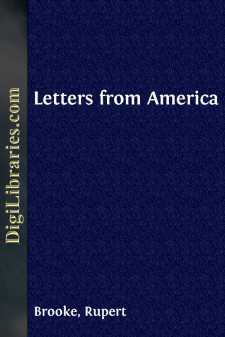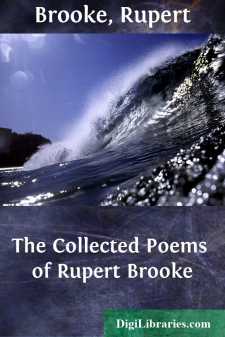Categories
- Antiques & Collectibles 13
- Architecture 36
- Art 48
- Bibles 22
- Biography & Autobiography 816
- Body, Mind & Spirit 145
- Business & Economics 28
- Children's Books 17
- Children's Fiction 14
- Computers 4
- Cooking 94
- Crafts & Hobbies 4
- Drama 346
- Education 58
- Family & Relationships 59
- Fiction 11834
- Foreign Language Study 3
- Games 19
- Gardening 17
- Health & Fitness 34
- History 1378
- House & Home 1
- Humor 147
- Juvenile Fiction 1873
- Juvenile Nonfiction 202
- Language Arts & Disciplines 89
- Law 16
- Literary Collections 686
- Literary Criticism 179
- Mathematics 13
- Medical 41
- Music 40
- Nature 179
- Non-Classifiable 1768
- Performing Arts 7
- Periodicals 1453
- Philosophy 66
- Photography 2
- Poetry 897
- Political Science 203
- Psychology 45
- Reference 154
- Religion 516
- Science 126
- Self-Help 85
- Social Science 82
- Sports & Recreation 34
- Study Aids 3
- Technology & Engineering 59
- Transportation 23
- Travel 463
- True Crime 29
Our website is made possible by displaying online advertisements to our visitors.
Please consider supporting us by disabling your ad blocker.
Letters from America
by: Rupert Brooke
Description:
Excerpt
Nothing more generally or more recurrently solicits us, in the light of literature, I think, than the interest of our learning how the poet, the true poet, and above all the particular one with whom we may for the moment be concerned, has come into his estate, asserted and preserved his identity, worked out his question of sticking to that and to nothing else; and has so been able to reach us and touch us as a poet, in spite of the accidents and dangers that must have beset this course. The chances and changes, the personal history of any absolute genius, draw us to watch his adventure with curiosity and inquiry, lead us on to win more of his secret and borrow more of his experience (I mean, needless to say, when we are at all critically minded); but there is something in the clear safe arrival of the poetic nature, in a given case, at the point of its free and happy exercise, that provokes, if not the cold impulse to challenge or cross-question it, at least the need of understanding so far as possible how, in a world in which difficulty and disaster are frequent, the most wavering and flickering of all fine flames has escaped extinction. We go back, we help ourselves to hang about the attestation of the first spark of the flame, and like to indulge in a fond notation of such facts as that of the air in which it was kindled and insisted on proceeding, or yet perhaps failed to proceed, to a larger combustion, and the draughts, blowing about the world, that were either, as may have happened, to quicken its native force or perhaps to extinguish it in a gust of undue violence. It is naturally when the poet has emerged unmistakeably clear, or has at a happy moment of his story seemed likely to, that our attention and our suspense in the matter are most intimately engaged; and we are at any rate in general beset by the impression and haunted by the observed law, that the growth and the triumph of the faculty at its finest have been positively in proportion to certain rigours of circumstance.
It is doubtless not indeed so much that this appearance has been inveterate as that the quality of genius in fact associated with it is apt to strike us as the clearest we know. We think of Dante in harassed exile, of Shakespeare under sordidly professional stress, of Milton in exasperated exposure and material darkness; we think of Burns and Chatterton, and Keats and Shelley and Coleridge, we think of Leopardi and Musset and Emily Bronte and Walt Whitman, as it is open to us surely to think even of Wordsworth, so harshly conditioned by his spareness and bareness and bleakness—all this in reference to the voices that have most proved their command of the ear of time, and with the various examples added of those claiming, or at best enjoying, but the slighter attention; and their office thus mainly affects us as that of showing in how jostled, how frequently arrested and all but defeated a hand, the torch could still be carried. It is not of course for the countrymen of Byron and of Tennyson and Swinburne, any more than for those of Victor Hugo, to say nothing of those of Edmond Rostand, to forget the occurrence on occasion of high instances in which the dangers all seem denied and only favour and facility recorded; but it would take more of these than we can begin to set in a row to purge us of that prime determinant, after all, of our affection for the great poetic muse, the vision of the rarest sensibility and the largest generosity we know kept by her at their pitch, kept fighting for their life and insisting on their range of expression, amid doubts and derisions and buffets, even sometimes amid stones of stumbling quite self-invited, that might at any moment have made the loss of the precious clue really irremediable. Which moral, so pointed, accounts assuredly for half our interest in the poetic character—a sentiment more unlikely than not, I think, to survive a sustained succession of Victor Hugos and Rostands, or of Byrons, Tennysons and Swinburnes. We quite consciously miss in these bards, as we find ourselves rather wondering even at our failure to miss it in Shelley, that such "complications" as they may have had to reckon with were not in general of the cruelly troublous order, and that no stretch of the view either of our own "theory of art" or of our vivacity of passion as making trouble, contributes perceptibly the required savour of the pathetic. We cling, critically or at least experientially speaking, to our superstition, if not absolutely to our approved measure, of this grace and proof; and that truly, to cut my argument short, is what sets us straight down before a sudden case in which the old discrimination quite drops to the ground—in which we neither on the one hand miss anything that the general association could have given it, nor on the other recognise the pomp that attends the grand exceptions I have mentioned.
Rupert Brooke, young, happy, radiant, extraordinarily endowed and irresistibly attaching, virtually met a soldier's death, met it in the stress of action and the all but immediate presence of the enemy; but he is before us as a new, a confounding and superseding example altogether, an unprecedented image, formed to resist erosion by time or vulgarisation by reference, of quickened possibilities, finer ones than ever before, in the stuff poets may be noted as made of....



